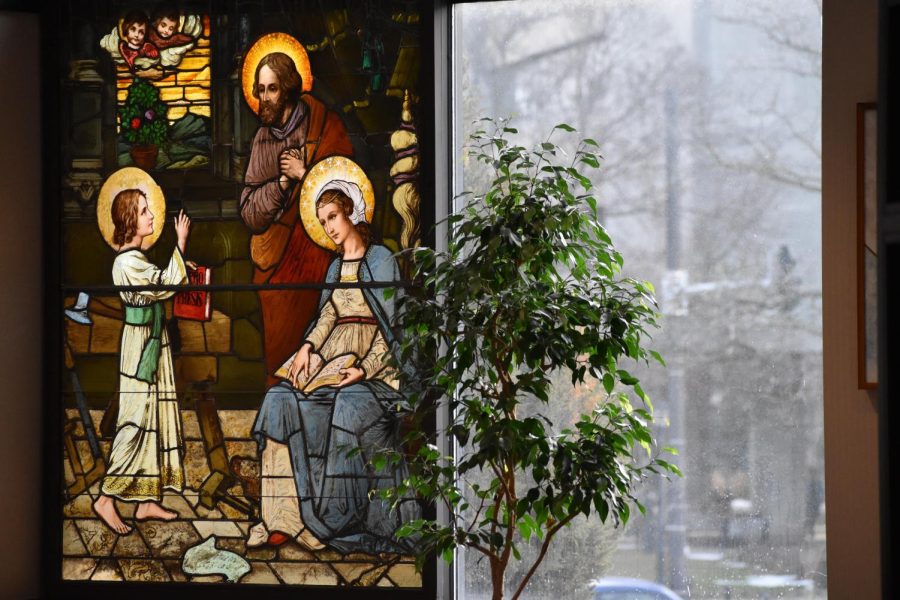Most references to agape can be found within the New Testament, but this type of love still exists outside of scripture.
“Agape is the Greek word for charity. Charity is the self-giving love. It’s a gift of self. It’s a love for the other, it’s other expanding,” the Rev. Ryan Duns, Jesuit and professor of theology, said.
Duns said that this type of love can be seen through the love of Jesus in cases when he heals or comforts people.
“His love for them is not to draw attention to himself, but it is to be other creative, it makes other people whole. It gives them new life. It creates opportunities for them,” Duns said. “So when we look at Jesus, what you’re looking at is love in action, loving the flesh. With all of his words and with all of his deeds, he’s letting people become who they’re called to be. It’s love if it’s love that frees people.”
Jesus isn’t the only one that can show this type of love. Duns said that this love can be shown through people that still love each other despite their faults.
“But that love that lets you make mistakes … that’s what Agape is. It’s love that, though. It’s the love that wants you to be you,” Duns said.
However, agape isn’t a love that’s always “warm and fuzzy.” At times it can be a love that challenges other people.
“We’re besties, we’re hanging out. And you make some, like, homophobic or racist comments. I would be a horrible friend if I was like, ‘Yeah, you’re right.’ I would be a better friend to say, ‘No, why would you say that?’”
In this way, agape can both free others, while at other times is corrective.
“Agape love in a way is by having high standards and being rigorous and saying no, that’s not right. That’s a part of love. It’s a love that accepts, that gives a lot of freedom, but also calls you to be truthful and be good.”
God in the Christian tradition differs from the idea of God in other religions. 1 John 4:18 says “God is love.” For Duns, this type of declaration is what makes God’s love so charitable and at times “insane.”
“God redeems everything the worst humans can do … because it’s not just that God is nice, but that God is so self-giving, as to enter into our world, to be one of us, to show us who we’re meant to be. We who are terribly allergic to love, to real love, kill him … . God is love that God loves each one of us is the hardest to imagine,” Duns said.
At times agape isn’t the only type of love one can experience through Jesus. The Rev. Michael McNulty said that the Jesuit experience often encompasses more than one form of love.
“So, for Jesuits, the idea of being a companion, or being a friend to Jesus is really kind of key. And so that means, you know, going where Jesus goes, doing what Jesus does. So that’s how agape and philia sort of mixed together,” McNulty said.
The idea of philia (brotherly love) and agape being mixed together can be seen through translations. McNulty said that the society of Jesus can sometimes be translated to “compañeros de Jesus” or “Jesus’s companions.“
“One who identifies with the purpose and mission of Jesus is, really, the kind of central notion of love for a Jesuit. And that’s why I say that it’s a little difficult for us to distinguish between agape and philia,” McNulty said. “Because that experience is so central to our lives. And it’s that which leads us to, to recognize the presence of God everywhere in the world. And particularly to experience every other human being, as being an image of God as being of infinite value.”
Duns said that in order to become better at loving one another, it’s best to start “right where you are.”
“When we love one another, when we really love another person, we’re saying I want you to grow into my life. I want your life to be a part of my life,” Duns said. “The more we love, the better we are at, the more we love, the more we give ourselves away, we find there’s more of us to give away.”
This story was written by Megan Woolard. She can be reached at megan.woolard@marquette.edu or on Twitter @MeganWoolard4.









